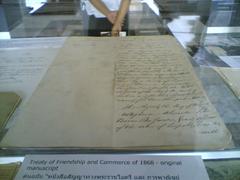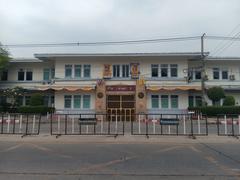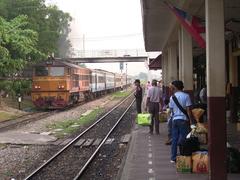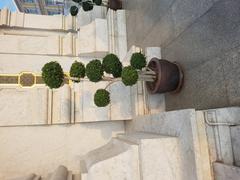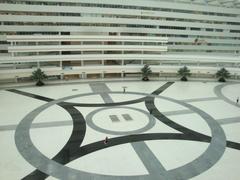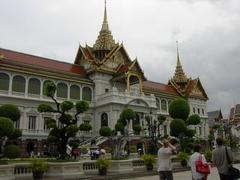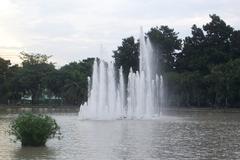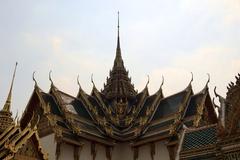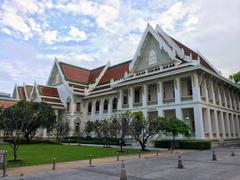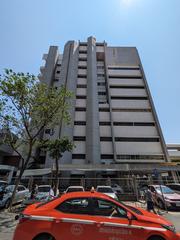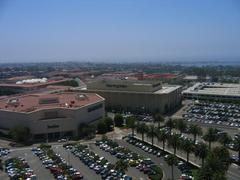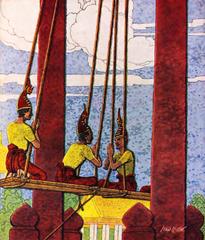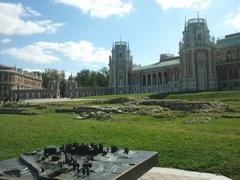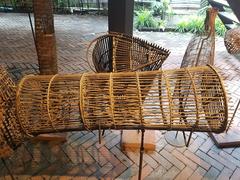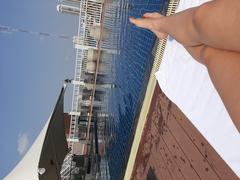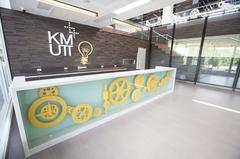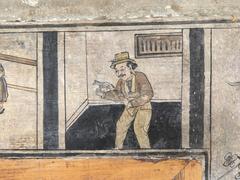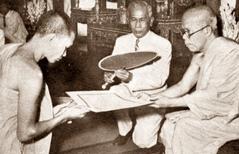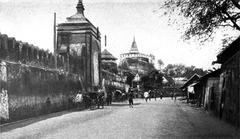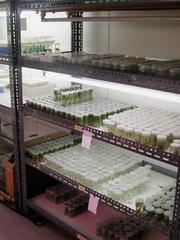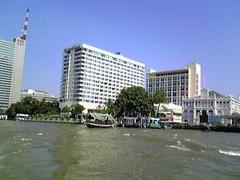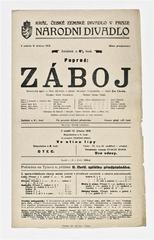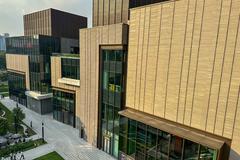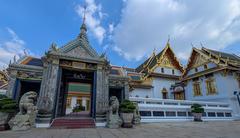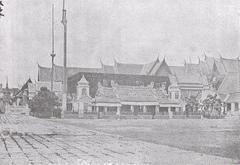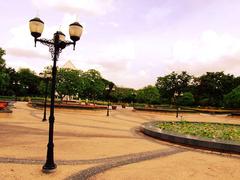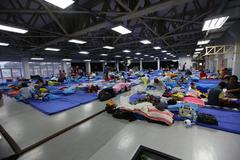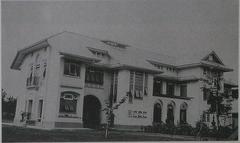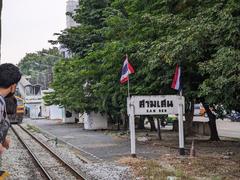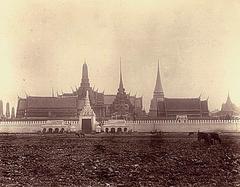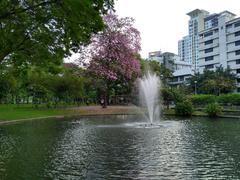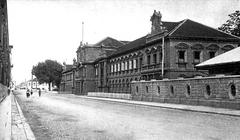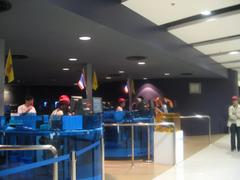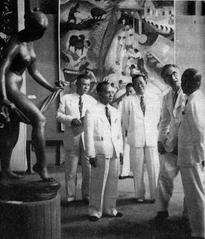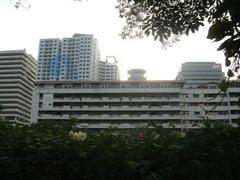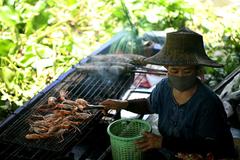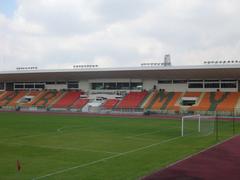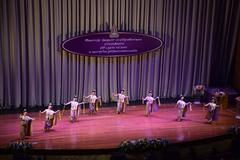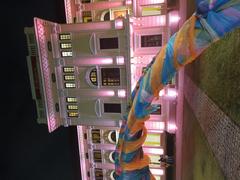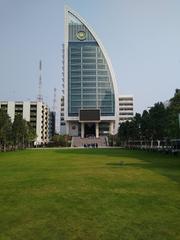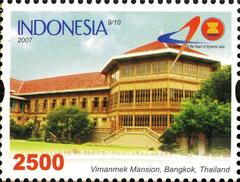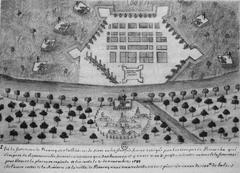
Visiting the Embassy of Portugal in Bangkok, Thailand: Complete Guide, Tickets, Hours, and Tips
Date: 04/07/2025
Introduction: The Embassy’s Significance and What to Expect
The Embassy of Portugal in Bangkok stands as the oldest European diplomatic mission in Thailand, embodying over five centuries of enduring diplomatic, cultural, and historical ties between Portugal and Thailand. Its legacy originates from the early 16th-century encounters, with the arrival of Portuguese envoys in the Ayutthaya Kingdom in 1511 and the subsequent 1516 treaty that established a Portuguese trading post. Today, the embassy’s grounds, classic Portuguese colonial architecture, and vibrant heritage offer visitors a glimpse into the unique narrative of early trade, cross-cultural influences, and the evolution of diplomatic relations that have shaped both nations (Wikipedia: Portugal–Thailand relations; Tour Bangkok Legacies).
Located on the eastern bank of the Chao Phraya River in Bangkok’s Bang Rak district, the embassy is not only a functioning diplomatic hub but also a living monument to the Portuguese community’s influence in Siam and the region. Visitors can explore special cultural exhibitions, historic architecture, and learn about the Portuguese diaspora’s legacy in Thailand through guided tours and public events (Timeout: Embassy of Portugal; Embassies.info).
This guide provides a comprehensive overview of the embassy’s history, practical visiting information, and cultural context, ensuring travelers and history enthusiasts make the most of their visit.
Table of Contents
- Introduction
- Early Portuguese-Siamese Relations
- The Portuguese Community and Its Legacy
- Establishment of the Embassy
- Modern Role in Thai-Portuguese Relations
- Architectural and Cultural Highlights
- Visiting Information
- Consular and Visa Services
- Tips for Visitors
- Cultural Events and Community Activities
- Nearby Attractions
- Frequently Asked Questions (FAQ)
- Summary and Final Tips
- References
Early Portuguese-Siamese Relations
Portugal’s relationship with Siam (Thailand) is the oldest ongoing diplomatic relationship between Thailand and a European nation, dating to 1511 when Portuguese envoys arrived in the Ayutthaya Kingdom after the conquest of Malacca (Wikipedia: Portugal–Thailand relations). The 1516 treaty granted the Portuguese trading rights and allowed them to supply firearms, gunpowder, and mercenaries to the Siamese king, laying the foundation for a mutually beneficial partnership (Tour Bangkok Legacies). Over subsequent centuries, the Portuguese became leading foreign traders, introducing European goods, military technology, and new crops. Their influence is still seen in Thai language loanwords and culinary traditions, such as the dessert “foi thong” (Portuguese Asia).
The Portuguese Community in Siam and Its Legacy
By the mid-16th century, a thriving Portuguese community had emerged in Siam, consisting of merchants, shipbuilders, and mercenaries. In 1540, King Chairachathirat granted land to Portuguese soldiers, forming the “Campos Portugues” south of Ayutthaya. By the time Ayutthaya fell in 1767, the Portuguese community numbered around 3,000—the largest European enclave in Siam (Wikipedia: Portugal–Thailand relations). Many descendants settled in Bangkok, particularly around the Immaculate Conception Church in Samsen, Santa Cruz Church in Kudi Chin, and Holy Rosary Church in Talat Noi. These communities maintain Catholic traditions and unique cultural practices, especially in Kudi Chin (Timeout: Portuguese Culture in Bangkok).
Establishment of the Embassy
In 1818, Portugal dispatched Carlos Manuel Silveira from Macao, leading to a commercial agreement with Siam. By 1820, the Treaty of Peace, Friendship, and Trade was signed, and King Rama II granted land south of the Holy Rosary Church for a Portuguese consulate. The initial wooden building was replaced by a permanent two-story Ambassador’s Residence by 1875, designed in Portuguese colonial style and featuring riverside verandas and period furnishings (Timeout: Embassy of Portugal). The ground floor, once offices, now serves as a reception area adorned with Ayutthaya-era artifacts and a historic prison cell from the era of extraterritoriality.
The Embassy’s Role in Modern Thai-Portuguese Relations
The Portuguese Embassy remains a symbol of enduring friendship, standing apart from the more turbulent histories Thailand shared with other European powers. In 1964, the mission was upgraded to embassy status, and Thailand opened a resident embassy in Lisbon in 1981 (Wikipedia: Portugal–Thailand relations). Today, the embassy in Bangkok is pivotal for diplomatic, cultural, and economic exchanges, with Ambassador Luiz de Albuquerque Veloso representing Portugal across Thailand and several neighboring countries (Embassies.info).
Architectural and Cultural Highlights
The Ambassador’s Residence is an architectural gem, celebrated for its classic Portuguese colonial features—spacious verandas, high ceilings, and period décor. The upper floor, reserved for official functions, displays works by Portuguese and Thai artists, including Somboon Hormtientong. The embassy supports local arts and culture, exemplified by a 2017 mural by renowned street artist Vhils and exhibitions marking 200 years of diplomatic relations (Tour Bangkok Legacies; Wikipedia: Embassy of Portugal, Bangkok).
Visiting Information
Hours and Appointments
- Regular Hours: Monday to Friday, 9:00 AM – 4:30 PM (closed on Thai and Portuguese public holidays)
- Visits: By appointment only or during special open days and cultural events. Advance booking is required for all consular, visa, and tour services.
Entry Fee and Accessibility
- Entry: Free during public open days and most cultural events; some special exhibitions or private tours may charge a nominal fee.
- Accessibility: The embassy is generally accessible to visitors with mobility needs, though some historic areas may have limitations due to the building’s age.
Location and Directions
- Address: 26 Charoen Krung Road, Soi 30 (Soi Captain Bush), Bang Rak, Bangkok 10500, Thailand
- Getting There: Easily reached via BTS Skytrain (Saphan Taksin Station), river ferry (Sathorn Pier), or taxi. The embassy is near the Holy Rosary Church and the Kudi Chin neighborhood.
Tours and Events
Guided tours and cultural programs are offered occasionally, especially during European Heritage Days and Portuguese National Day. Check the embassy’s website and social media channels for the latest schedules.
(Timeout: Embassy of Portugal; Embassies.info)
Consular and Visa Services
Consular Services
The embassy provides services for Portuguese citizens and foreign nationals, including:
- Passport renewals and replacements
- Civil registration (births, marriages, deaths)
- Notarial and legal services
- Emergency assistance
Visa Services
Visa applications for Portugal are managed by TLScontact, a third-party agency. The process involves document submission, possible interviews at the embassy, and advance planning due to variable processing times.
Required Documents:
- Valid passport (at least three months’ validity after departure, two blank pages)
- Completed application form
- Passport-sized photographs
- Proof of accommodation, travel itinerary, financial means, and Schengen-area travel insurance
- Supporting documents as applicable (e.g., employment or invitation letters)
- Non-English or non-Portuguese documents may require certified translation
Tips for Visitors
- Book Early: Appointment slots fill quickly, especially during peak periods.
- Check Holidays: Confirm embassy closures in advance.
- Arrive Promptly: Late arrivals may require rescheduling.
- Dress Respectfully: Modest attire is expected.
- Be Polite: Courtesy is appreciated in line with Thai customs.
- Language: Staff speak Portuguese, English, and Thai; assistance is available if needed.
- Notify Accessibility Needs: Contact the embassy in advance for special arrangements.
Cultural Events and Community Activities
The embassy is active in promoting Portuguese culture through:
- Portuguese National Day (June 10)
- Art exhibitions, concerts, and community workshops
- Educational seminars and language events
Events may require RSVP or invitation and are publicized on the embassy’s website and social media.
Nearby Attractions
Explore the vibrant Bang Rak district and nearby sites:
- Holy Rosary Church (historic Catholic church adjacent to the embassy)
- Kudi Chin Community (preserved Portuguese enclave)
- Santa Cruz Church and Assumption Cathedral
- Mandarin Oriental Hotel (historic riverside landmark)
- River City Bangkok (art and antiques center)
- Iconsiam (luxury shopping and cultural complex)
Frequently Asked Questions (FAQ)
Q: Can I visit the embassy without an appointment?
A: No; appointments are required for all visits except during public open days or special events.
Q: Is there an entry fee?
A: Entry is generally free during public events; private tours or exhibitions may have a nominal fee.
Q: Are guided tours available?
A: Occasionally, during special events. Check embassy communications for updates.
Q: Is the site accessible for visitors with mobility needs?
A: Most areas are accessible, but some historic sections may have limitations.
Q: What are the nearest attractions?
A: Holy Rosary Church, Kudi Chin, Santa Cruz Church, and other riverside landmarks.
Q: How do I apply for a Portugal visa?
A: Through TLScontact; documents are submitted and interviews may take place at the embassy.
Summary and Final Tips
The Embassy of Portugal in Bangkok is a vibrant symbol of centuries-old diplomacy and cultural exchange. Its preserved colonial architecture and active programming offer a unique visitor experience, while practical information on visiting hours, appointments, and accessibility ensures a smooth visit. The embassy’s riverside location is a gateway to exploring the historical and cultural richness of Bangkok’s Portuguese legacy, making it a must-see for travelers interested in history, culture, and international relations.
Stay updated on opening hours, events, and visitor requirements by consulting the embassy’s official website or contacting them directly. Enhance your experience by exploring nearby historical sites and utilizing resources like the Audiala app for guided tours and insider tips.
References
- Wikipedia: Portugal–Thailand relations
- Tour Bangkok Legacies: Visiting the Portuguese Embassy in Bangkok
- Timeout: Embassy of Portugal in Bangkok
- Embassies.info: Portuguese Embassy in Bangkok
- Wikipedia: Embassy of Portugal, Bangkok
- Timeout: Portuguese Culture in Bangkok



